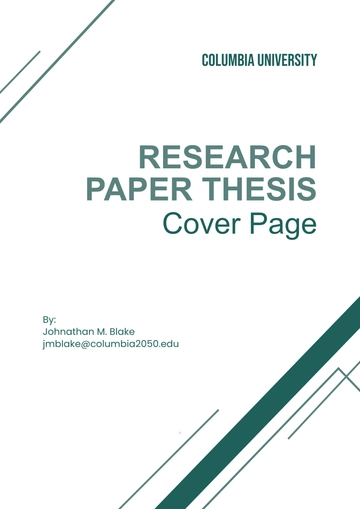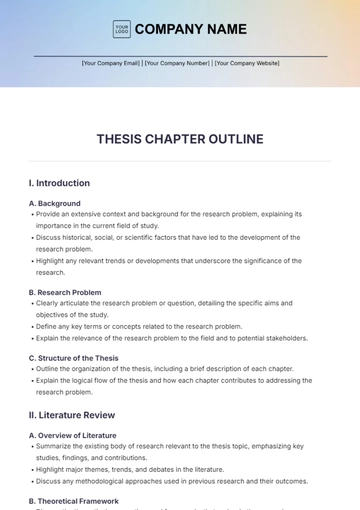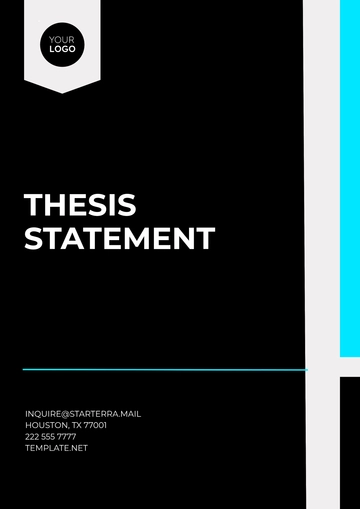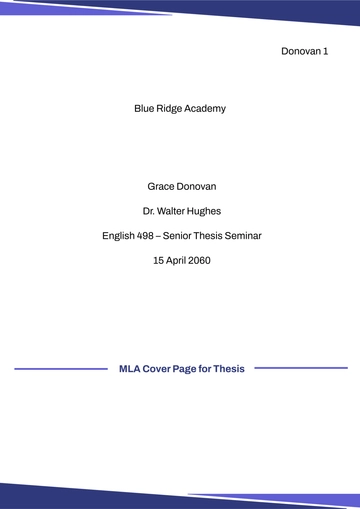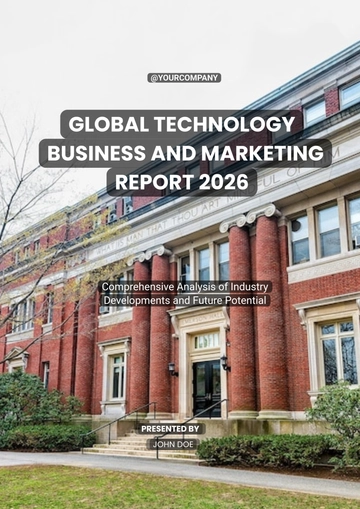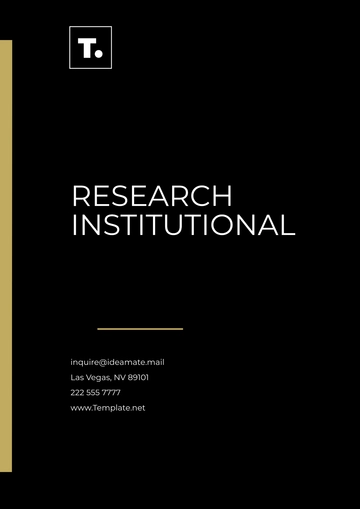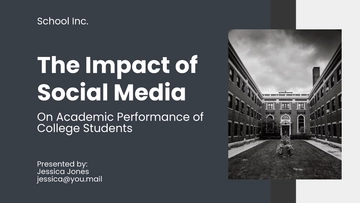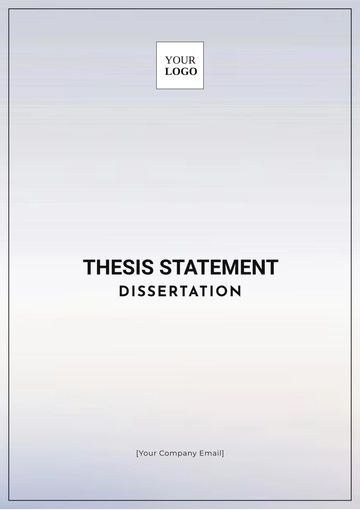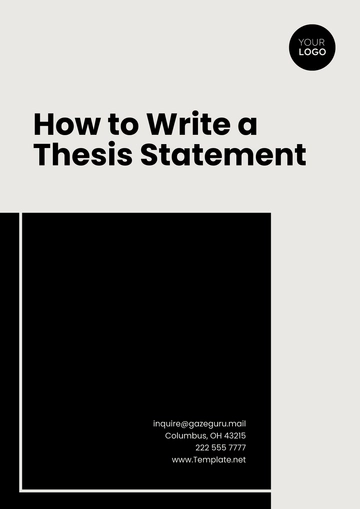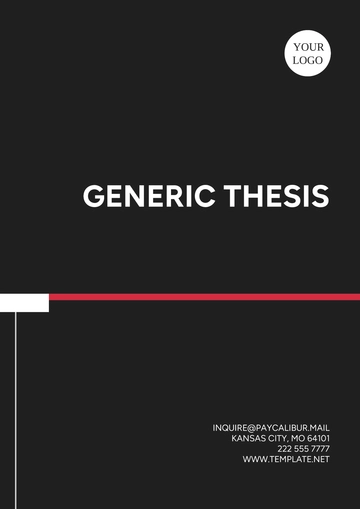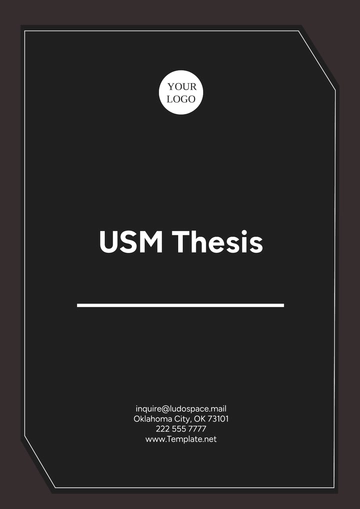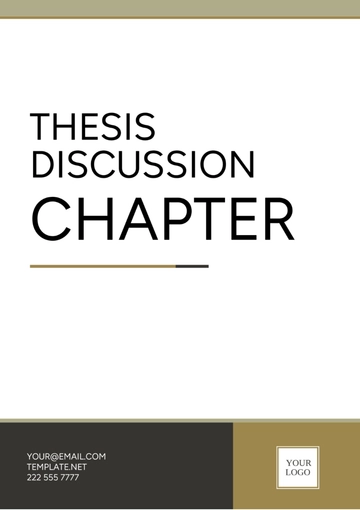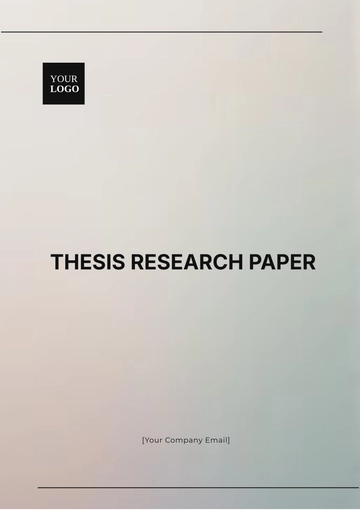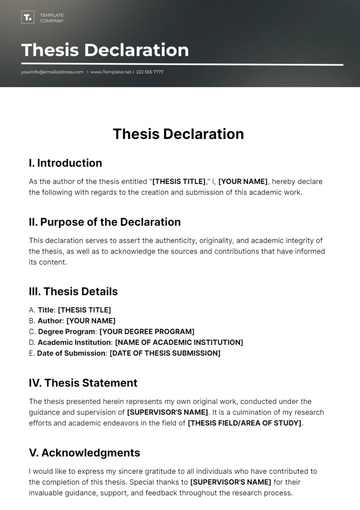Free High School Thesis

I. Introduction
In today's digital age, social media has become an integral part of daily life, especially among teenagers. While it offers many benefits, such as improved communication and access to information, the impact of social media on mental health has become a growing concern. This thesis aims to explore how social media affects the mental health of teenagers, both positively and negatively, through an analysis of existing research, surveys, and expert opinions.
II. Background Information
Social media platforms, such as Instagram, Facebook, Snapchat, and TikTok, have revolutionized how teenagers communicate and interact with the world. However, the increase in screen time and the pressure to maintain a certain online image have led to concerns about the psychological effects of these platforms. Studies have shown that social media can contribute to feelings of isolation, anxiety, and depression, especially when users compare themselves to others. This section provides a foundational understanding of the growth of social media and its prominence among the teenage demographic.
Key Points:
Social media platforms frequently used by teenagers: Instagram, TikTok, and Snapchat.
Rise in screen time among teenagers in recent years.
Growing concerns among parents, teachers, and healthcare professionals about social media's effects on mental health.
III. Research Methodology
To explore the effects of social media on teenage mental health, a mixed-methods approach was used. The research involved:
Literature Review: A review of academic articles, journals, and previous studies on the topic.
Survey: A survey of 100 high school students, asking about their social media usage, feelings of self-worth, and mental health.
Interviews: Interviews with two school counselors to gain professional insights into the mental health challenges teens face due to social media.
The data collected from these sources were analyzed to identify patterns and correlations between social media use and mental health outcomes in teenagers.
IV. Findings and Discussion
Positive Impacts of Social Media
Social media has several potential benefits for teenagers. It allows for greater connectivity, helps in building friendships, and provides platforms for creative expression. According to the survey, 60% of students reported using social media to stay connected with friends and family, which can enhance feelings of belonging and support. Furthermore, social media provides access to educational resources and communities focused on personal growth.
Example of Positive Impact:
Teen’s Story: "I follow a mental health awareness page on Instagram, and it has helped me feel less alone with my struggles."
Negative Impacts of Social Media
Despite its positive aspects, the negative effects of social media are significant. The survey revealed that 40% of students experienced feelings of anxiety or low self-esteem due to social media. Teenagers often face pressure to present a curated, idealized version of themselves, which can contribute to unhealthy comparisons and body image issues. Experts note that the constant exposure to "highlight reels" of others' lives can exacerbate feelings of inadequacy.
Example of Negative Impact:
Teen’s Story: "Sometimes, I feel like my life isn’t as exciting or perfect as what I see online, and that makes me feel anxious."
V. Social Media and Mental Health Disorders
There is a growing body of research suggesting a correlation between excessive social media use and mental health disorders in teenagers. According to a study by the American Psychological Association (2020), teenagers who spend more than three hours a day on social media are at a higher risk of developing symptoms of depression and anxiety. The research also suggests that social media can disrupt sleep patterns, which in turn affects mental well-being.
Table: Survey Results on Social Media Usage and Mental Health Symptoms
Social Media Usage (hours/day) | Percentage Reporting Anxiety | Percentage Reporting Depression |
|---|---|---|
Less than 1 hour | 10% | 5% |
1 to 2 hours | 25% | 20% |
2 to 3 hours | 30% | 35% |
More than 3 hours | 40% | 50% |
VI. Recommendations for Healthy Social Media Use
To mitigate the negative effects of social media on mental health, several strategies can be implemented. First, encouraging teenagers to limit their screen time to no more than two hours per day could help reduce the risk of developing mental health problems. Schools can also offer programs to educate students about the dangers of social media and promote mindfulness and self-care practices.
Other strategies include:
Setting boundaries: Teenagers should be encouraged to take regular breaks from social media and set time limits for usage.
Promoting positive content: Following accounts that promote mental health awareness, self-love, and positivity can help foster a supportive online environment.
Encouraging face-to-face interactions: Prioritizing in-person social interactions over online communication can help build stronger real-life relationships.
VII. Conclusion
In conclusion, social media has both positive and negative effects on the mental health of teenagers. While it offers valuable opportunities for connection and self-expression, it can also contribute to feelings of anxiety, depression, and isolation. By understanding these effects and implementing strategies for healthier social media use, teenagers can benefit from the advantages of digital connectivity while minimizing its potential harms. As social media continues to evolve, it is essential for students, parents, and educators to remain vigilant and proactive in addressing its impact on mental well-being.
Prepared by: [YOUR NAME]
Email: [YOUR EMAIL]
- 100% Customizable, free editor
- Access 1 Million+ Templates, photo’s & graphics
- Download or share as a template
- Click and replace photos, graphics, text, backgrounds
- Resize, crop, AI write & more
- Access advanced editor
The High School Thesis Template from Template.net offers a fully customizable and editable solution for students. With its professional design, this template ensures your thesis meets academic standards. Use the AI Editor Tool to effortlessly make adjustments, tailoring every detail to your needs. Save time while presenting a polished, well-organized thesis.


